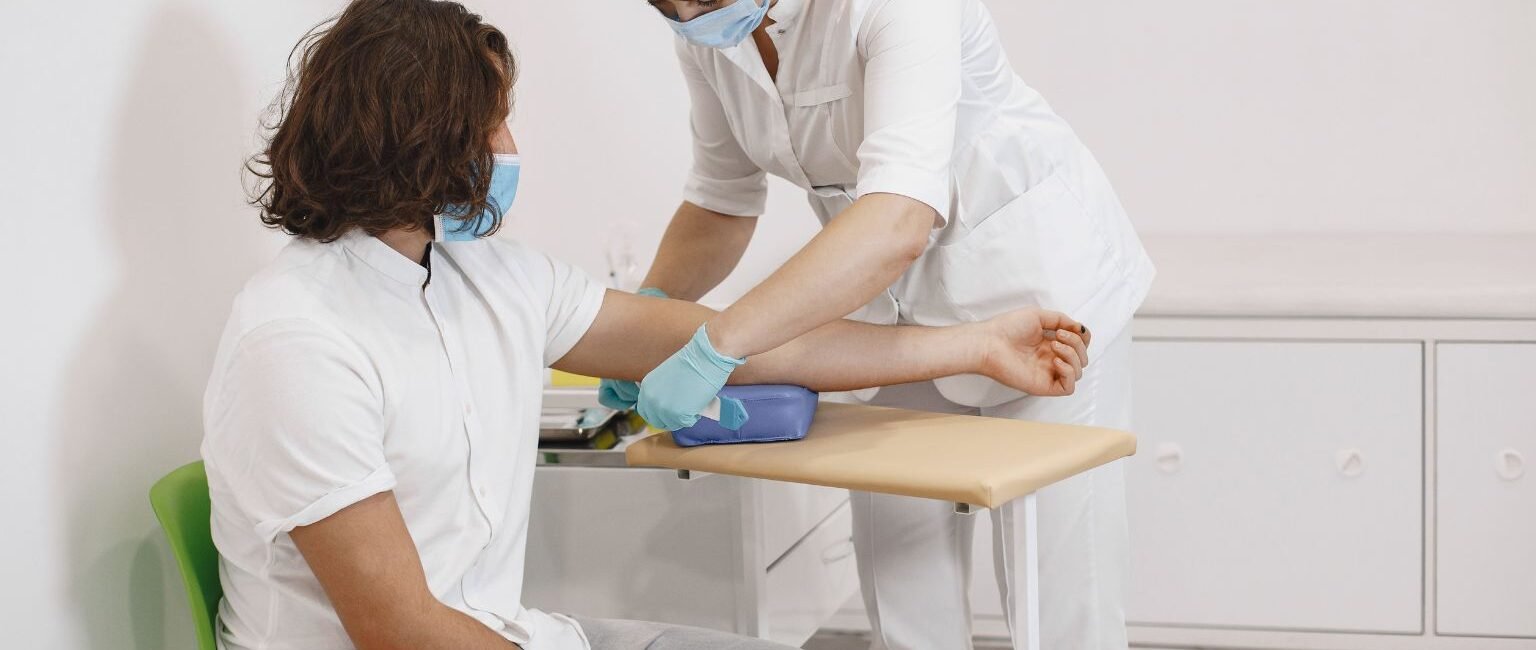
Dengue fever is a viral infection transmitted by certain species of mosquitoes (particularly the Aedes mosquito). If untreated or detected late, it may progress to more serious forms such as dengue haemorrhagic fever or dengue shock syndrome.
Since the symptoms (high fever, severe headache, pain behind the eyes, body and joint aches, rash, nausea) overlap with other viral fevers, early and accurate testing becomes key — especially in a city like Delhi where mosquito‐borne illnesses rise in certain seasons.
When should you get a dengue test in Delhi
You should get a dengue test in Delhi:
If you develop a high fever (often sudden), along with features like headache, eye pain, muscle‐/joint‐ache, rash, nausea/vomiting or bleeding signs (e.g., gum bleeding, nose bleeding, easy bruising).
If a doctor suspects dengue on the basis of symptoms and exposure‑risk (mosquito‑heavy environment, stagnant water nearby, prior dengue history).
Ideally as early as possible, because certain tests are most accurate in specific time‑windows after onset of fever. Delay can reduce accuracy.
How testing works: types of dengue tests
Testing for dengue typically involves one or more of the following, depending on how many days have passed since symptoms began:
1. NS1 antigen tests
These detect a non‑structural protein (NS1) of the dengue virus. They are most useful in the first 4–5 days of illness (early phase), when the virus is actively present in the blood.
2. IgM and IgG antibody tests
IgM antibodies appear typically around day 4–5 onward and indicate a recent infection.
IgG antibodies indicate past exposure / secondary infection or may persist longer. They are useful for understanding if someone has been infected before.
3. RT‑PCR or other virus RNA detection
In some cases, especially where early confirmation is critical, molecular methods detect the virus’s genetic material. These are sophisticated and more sensitive but not always required for routine diagnosis.
4. Supporting tests
Since dengue often leads to lowering of platelet count (thrombocytopenia) and may affect liver function, complete blood count (CBC) and liver‑function tests may accompany dengue testing to monitor severity and guide management.
How to get tested: process & what to expect
Consultation: First you should see a doctor, especially if fever is high and persists for more than 2–3 days. The doctor will assess symptoms, history and risk‑factors and decide which test(s) to order.
Sample collection: A blood sample is drawn (no special fasting required for most dengue tests). Some labs also offer home‑collection options, particularly helpful if you’re weak or prefer avoiding travel.
Laboratory processing: The lab uses the method indicated (NS1, antibody, etc). The turnaround time depends on the type of test and lab capacity. Many labs in Delhi now offer quicker reporting (same day or next day) for dengue panels.
Result interpretation & follow‑up:
A positive NS1 early on strongly suggests dengue.
A positive IgM confirms recent infection; IgG may indicate past or secondary infection.
If platelet count is low or dropping, or other signs of severity are present (bleeding, organ involvement), hospitalisation and closer monitoring may be required.
Why test early & what the benefits are
Early detection leads to several advantages:
Initiation of appropriate supportive care (hydration, rest, monitoring) before complications develop.
Reduced risk of progression to severe forms (haemorrhagic, shock) because treatment and monitoring start timely.
Differentiation from other causes of fever (malaria, typhoid, flu) so that the correct care pathway is chosen.
Things to keep in mind / practical tips
Do not take non‑steroidal anti‐inflammatory drugs (NSAIDs) like aspirin or ibuprofen when dengue is suspected, because of bleeding risk — paracetamol is preferable for fever and pain unless the doctor advises otherwise. (Often noted in clinical guidance.)
Stay well‑hydrated: oral rehydration salts (ORS), plenty of fluids, cautious monitoring of urine output.
If your platelet count falls significantly, or bleeding/organ symptoms appear (persistent vomiting, abdominal pain, drowsiness, nose/gum bleeding) then urgent medical attention is required.
Even if initial symptoms seem mild, keep in mind that complications may arise around day 4‑7 of illness when platelet drop is most likely.
Use preventive measures (mosquito repellent, window nets/screens, eliminating stagnant water) to reduce risk of being bitten by Aedes mosquitoes — because prevention remains better than cure.
Summary
In Delhi, with heightened risk of dengue during mosquito‐active seasons, prompt testing is critical. Recognising symptoms early, consulting a doctor, and getting the right blood test (NS1 antigen, IgM/IgG antibody, supporting CBC/liver tests) can make a big difference in outcome. While most cases recover with good supportive care, serious complications are avoidable when diagnosis and monitoring are timely.

